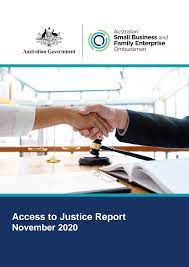By Riley Anastasio >>
Following the decision of Workpac Pty Ltd v Rossato (Rossato) in 2020, employers were left with uncertainty regarding their casual workforce, with concerns of misclassification and ‘double dipping’.
Thankfully for employers, on March 22, 2021, new legislation was passed that significantly amended the casual employment regime.
The legislation includes a definition of ‘casual employee’ and expands upon already existing casual conversion rights, including an obligation on employers to offer permanent employment in certain circumstances. 
What is a casual employee?
There is now a statutory definition of a casual employee. A casual employee is an employee who:
- has been given an offer of employment on the basis that the employer makes no firm advance commitment to continuing and indefinite work according to an agreed pattern of work (CasualOffer);
- accepts the offer on the above basis.
The legislation includes an exhaustive list of factors that must be considered when determining whether, at the time the Casual Offer is made, the employer makes no firm advance commitment to continuing and indefinite work according to an agreed pattern of work. These include, but are not limited to whether:
- the employer can elect to offer work and whether the person can elect to accept or reject work;
- the person will work according to the needs of the employer;
- the person will be entitled to a casual loading or specific rate of pay for casual employees.
Importantly, the question of whether a person is a casual employee is to be assessed on the basis of the offer of employment and acceptance of that offer, not on the basis of any subsequent conduct of either party.
This arguably reverses the approach taken in Rossato, which assessed casual employment based on the conduct of the parties during the employment.
Changes to casual conversion
The Bill also introduces an obligation to offer casual employees permanent employment when certain circumstances are met. This will apply unless the employer can show there are ‘reasonable grounds’ not to make the offer.
An employer (other than a small business employer) must offer a casual employee conversion to either part-time or full-time employment if:
- the employee has been employed for a period of 12 months;
- during at least the last six months, the employee has worked a regular pattern of hours on an ongoing basis that, without significant adjustment, the employee could continue to work as a full-time or part-time employee.
Employers will be obliged to make a casual conversion offer, in the form prescribed, unless ‘reasonable grounds’ exist for not making the offer, based on facts that are known, or reasonably foreseeable. Reasonable grounds for deciding not to make an offer include, but are not limited to:
- in the period of 12 months after the time of deciding not to make the offer:
- the employee’s position will cease to exist;
- the hours of work that the employee is required to perform will be significantly reduced;
- there will be a significant change in:
- the days on which the employee’s hours of work are required to be performed
- the times at which the employee’s hours of work are required to be performed
- and this cannot be accommodated due to the employee’s availability
- making the offer would not comply with a recruitment or selection process required by or under law of the Commonwealth or a state or territory.
The Bill also gives casual employees a residual right to request conversion to permanent employment in circumstances where they have been employed for at least 12 months and have worked a regular patter of hours on an ongoing basis in the last six months that, without significant adjustment, they could continue to work as a full time or part-time employee.
Employers can only refuse a request for casual conversion made by an employee where ‘reasonable grounds’ for the refusal exist. The factors relevant to whether reasonable grounds exist are the same as the ones used to determine whether an employer must make an offer to casual employees to convert.
If an offer is accepted by an employee or granted by an employer, the employer must, within 21 days, notify the employee of:
- whether they are converting to full-time or part-time employment;
- their hours of work after the conversion;
- the day the conversion will take effect.
Disputes
There is a new dispute resolution mechanism for disputes regarding an employer’s obligation to offer casual conversion or an employee’s right to request casual conversion. The dispute resolution mechanism may be contained in:
- a fair work instrument that applies to the employee (e.g. an enterprise agreement);
- the employee’s contract of employment;
- another written agreement between the employer and employee.
If none of these mechanisms apply to the parties and the dispute could not be resolved at a workplace level, they may refer their dispute to the Fair Work Commission.
Casual employment information statement
Employers must give each casual employee a Casual Employment Information Statement before, or as soon as practicable after, the employee starts employment as a casual employee.
The Fair Work Ombudsman has been tasked with preparing a ‘Casual Employment Information Statement’, containing information about casual employment and offers and requests for casual conversion.
Casual loadings
In lieu of accruing permanent entitlements (e.g. annual leave and personal leave), casual employees are paid a separately identifiable amount, called a ‘casual loading’.
Labelled as potential ‘double dipping’, courts in recent cases have, when finding an employee is not a casual employee at law, not allowed employers to ‘set off’ the casual loading paid to the employee during their employment against the amount owed to them for permanent entitlements.
In response, the legislation requires a court, when making any order in relation to a claim by a casual employee for permanent entitlements, to reduce any amount payable for permanent entitlements by an amount equal to the casual loading paid during the period for which permanent entitlements are claimed.
Courts may, where an employer pays an employee a loading in satisfaction of a number of entitlements and only a portion of the loading is paid in lieu of permanent entitlements, reduce the amount the employer is required to pay by the proportion attributable to permanent entitlements.
The new legislation has given employers and their casual employees more certainty. It will be extremely important that employers are familiar with the new requirements and that they comply with them.
It will also be important that employers update their casual employment contracts for all employees, whether covered by a Modern Award or not, so that they trigger the protections in the new laws.
For more information, contact the Cooper Grace Ward Lawyers workplace relations and safety team.
Partners Belinda Winter and Annie Smeaton will be hosting a complementary webinar on this topic on April 30, 2021. To register, see the listing on the Business Acumen Events Calendar.
www.cgw.com.au
*Author Riley Anastasio is a graduate team member at Cooper Grace Ward, Brisbane.
ends


 How to resolve AdBlock issue?
How to resolve AdBlock issue? 




